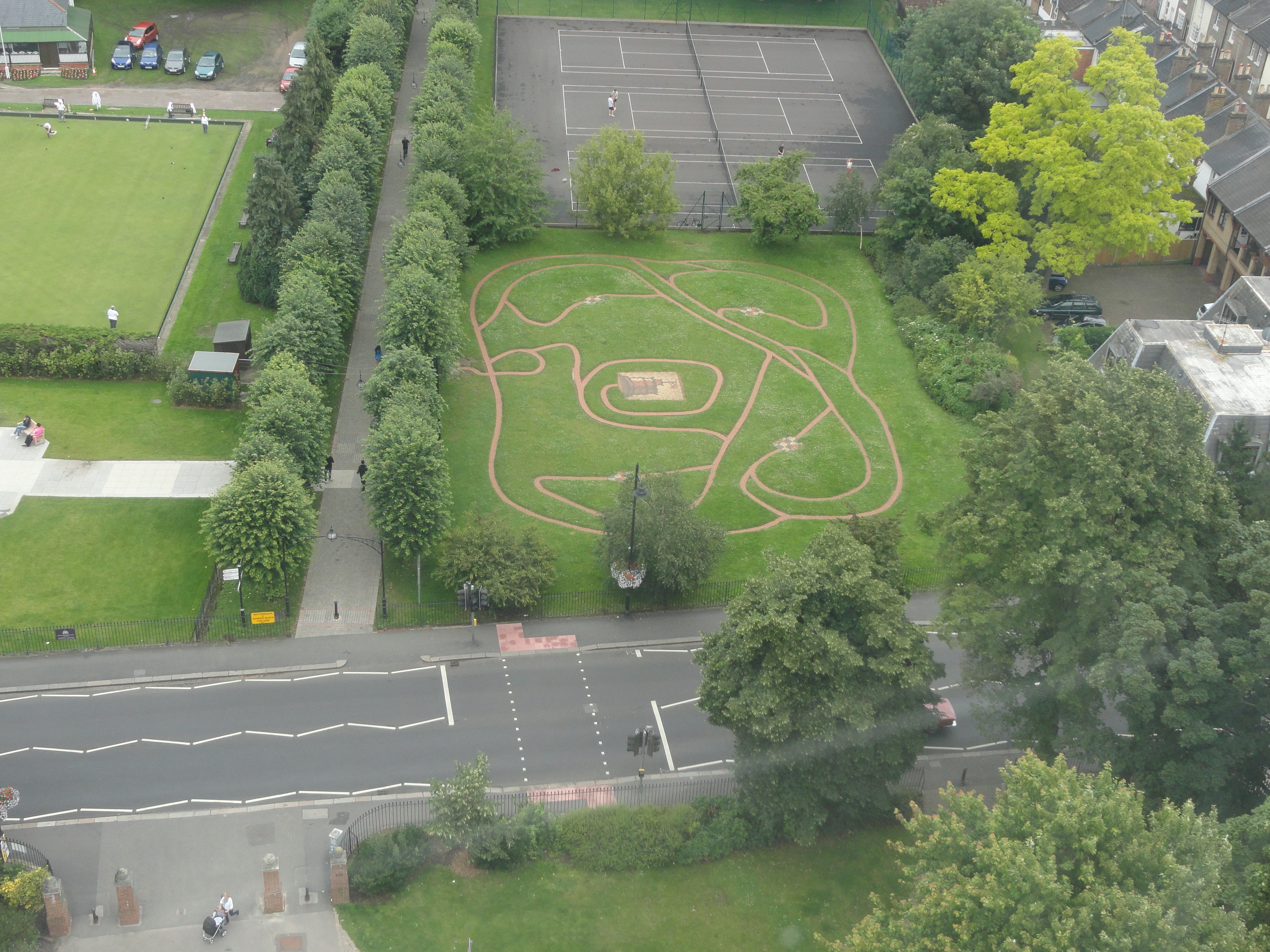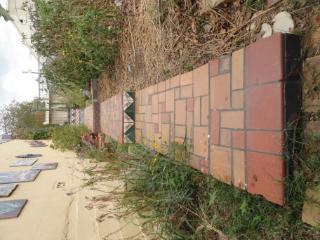photo by Sandra Dodd



Two religions are involved already, in that 19th century steam-powered music machine. Also, it having been made in the late 19th century, it was an engineering situation involving the latest technologies. I couldn't decide whether to link this to Connections or to Mechanical Music, so here are both links. The green and flowery French Calliope down on that page is a video I made, and I went around the back to show the punch card that plays the particular song. The one pictured above works that way, too. You can go exploring from home! |
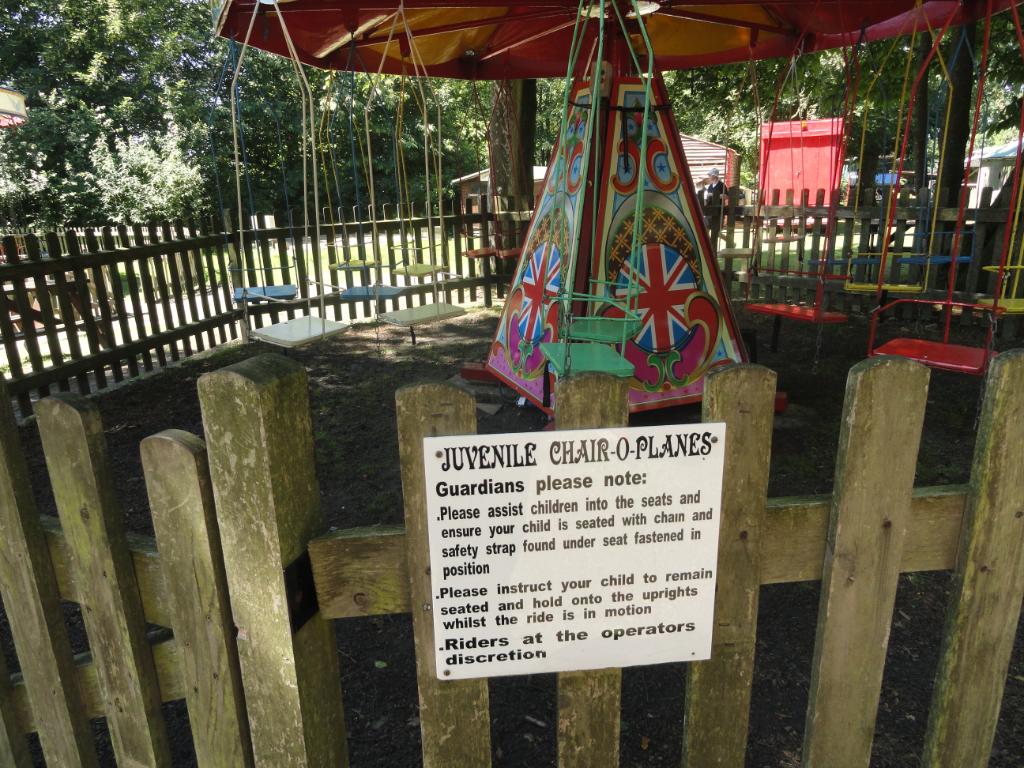
The history of science, the history of technology, and in this case art and music, too, can help fill in a lot of connections and timelines.


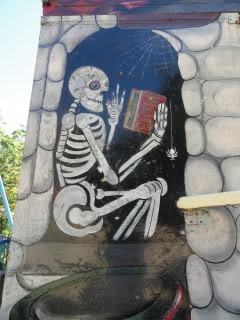 | There are no hours of school, and there are no hours of not learning. |

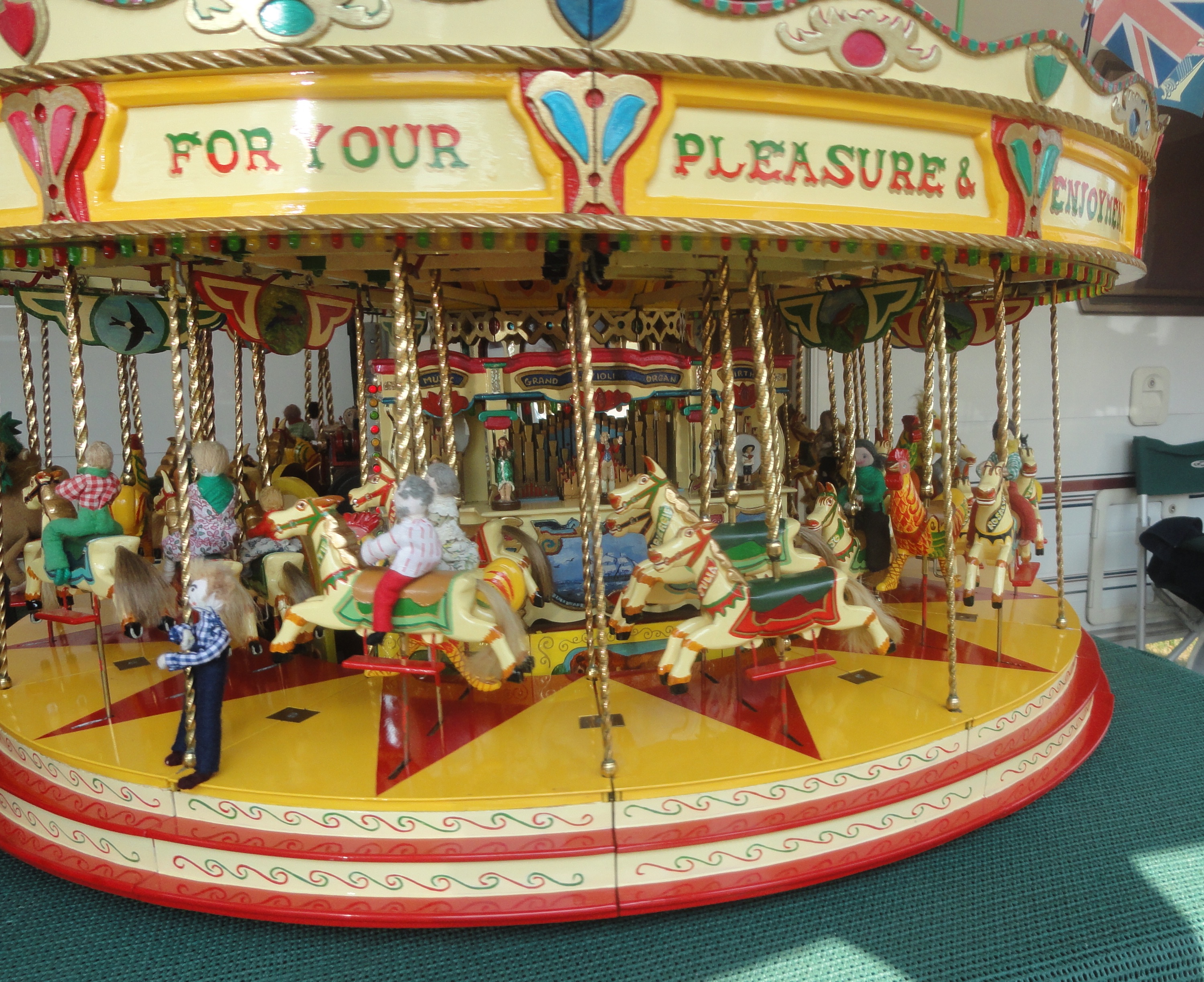
This is a first run of a trick Vlad Gurdiga has arranged for my site to do—a tool for using folders as slide shows. Vlad's pretty great. For me, the photos loaded quickly on my MacBook, semi-quickly on an iPad, and a subset of them loaded, after a while, on my iPhone.
The first photos are pub lunch in Liphook, animals on the property near the car park, some of Hollycombe's collection of wagons that travelling-fair workers used to live in, and of various things inside the park.


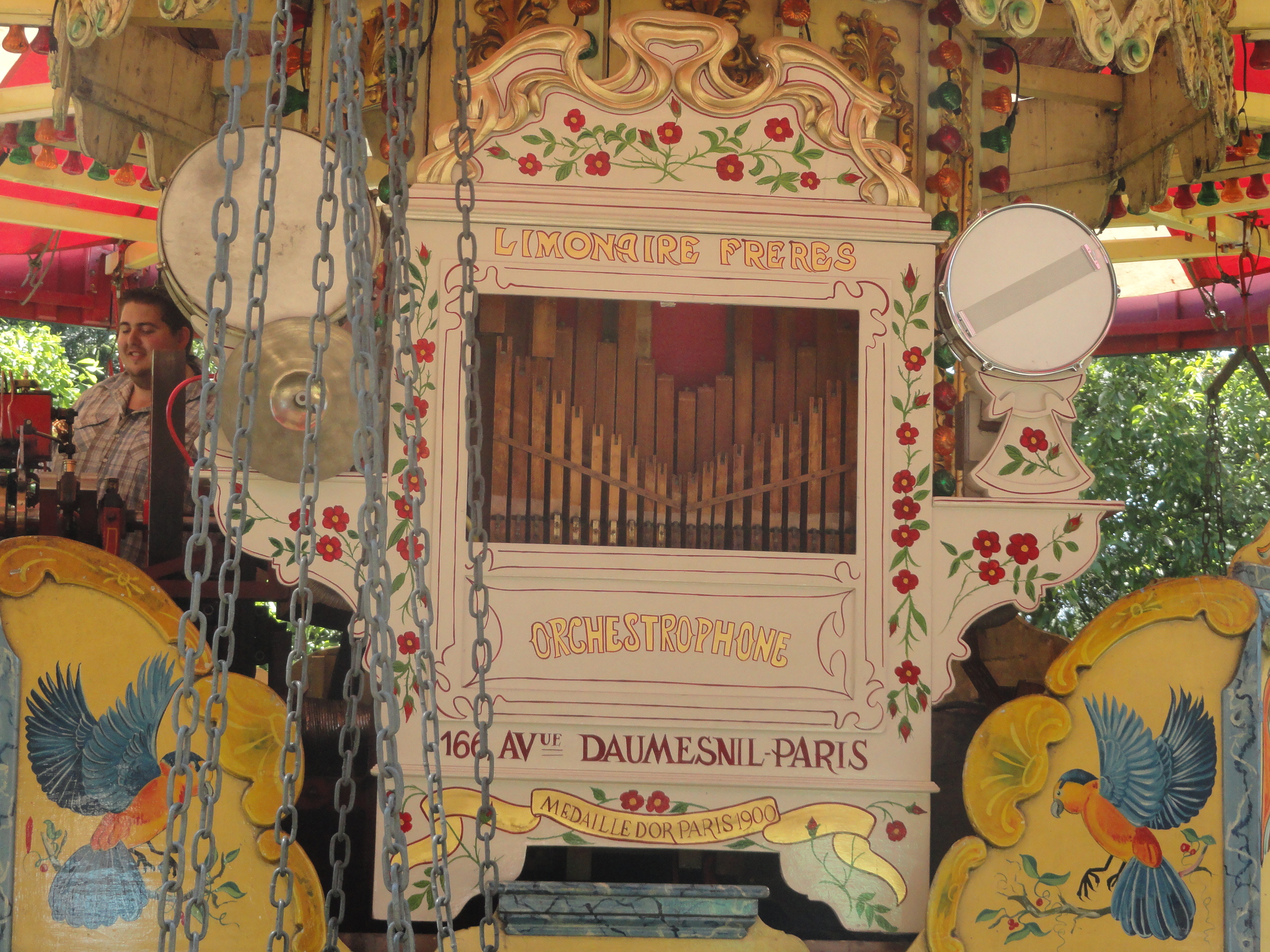
"My son has experienced a lot of wonderful learning through discovery and knows how to find instruction if that's what he wants. I have a wild idea that doing what he wants to do is more important than doing what science educators would like him to do. I don't think all innovators and leaders have to come fromthe molded and stamped process that produced a previous innovator. I think new understanding often comes from fresh and fearless approaches to discovery. So, while some people are working to prove Piaget wrong, I think he had a good idea when he said, 'If you want to be creative, stay in part a child, with the creativity and invention that characterizes children before they are deformed by adult society.'"
Kes's mom wrote:
It’s the shadow of a piece of seaweed on a chalk stone. He took the photo because he spotted that it looks like a mermaid 🧜🏼♀️ (a steam punk mermaid perhaps). Taken at Holywell beach, Eastbourne.
Sandra says:
That's on the south end of England, halfway between Brighton and Hastings, for those whose map of England comes from history and literature. (← That was me, until I got to go and run around there some.)The rock above the chalk mermaid is flint. There are medieval churches built of flint. It was mined, underground, by stone-age people.

